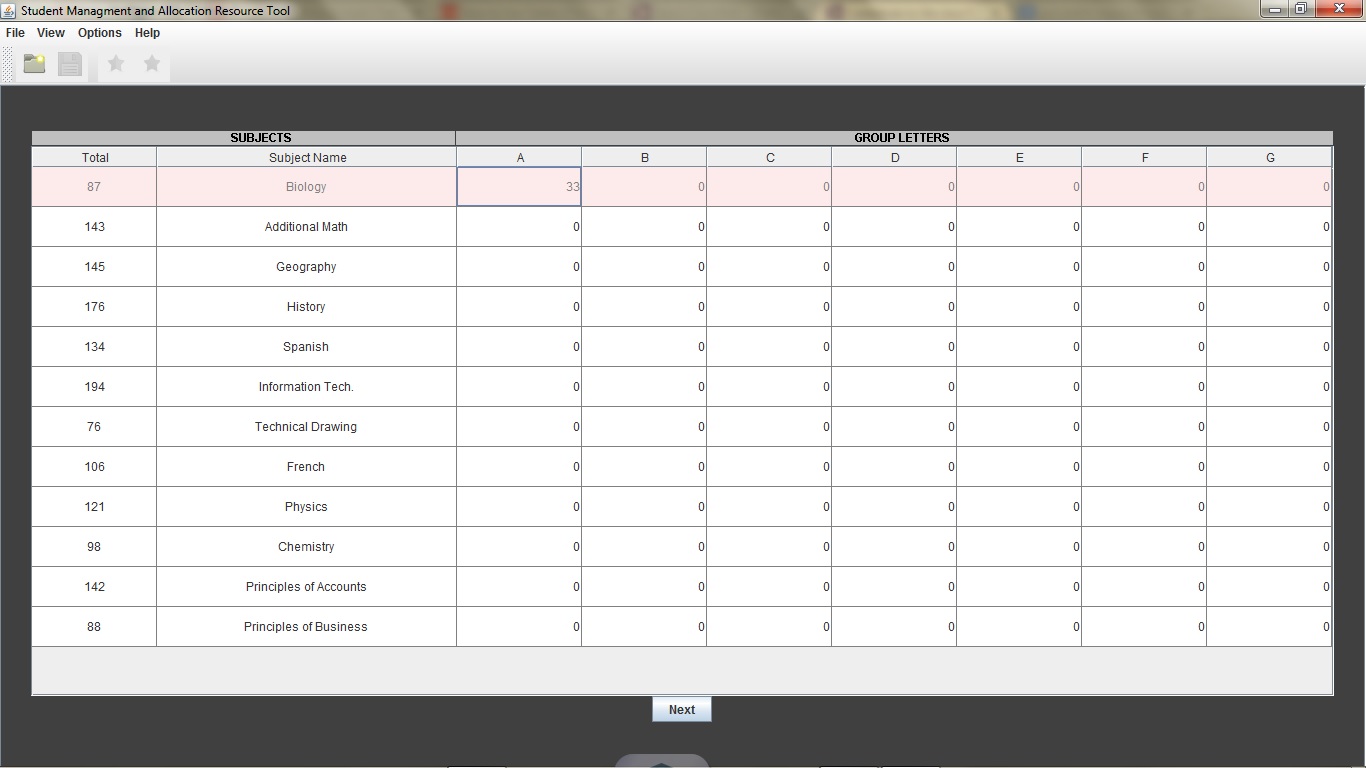Hello Good day.
Here is the problem I am trying to solve.
I have a table as seen below.

My GOAL:
Columns A through G are going to be filled with integers. (I have already created an integer model so that these cells only take integers). As the cells in that range are filled, the Totals column will decrease in number until it reaches zero. So far I have managed to use a TableModelListener to respond to the changing cell values.
What I wish to do now is to prevent a cell, that is being edited, from accepting an integer value if it leads to the Totals Column value being a negative number. Any help with this please?

